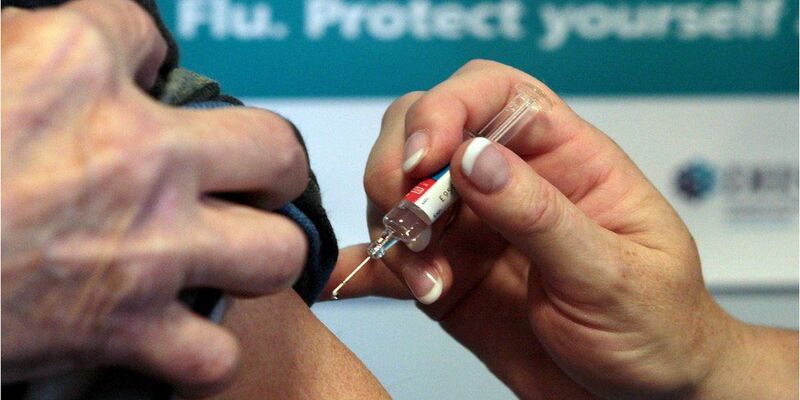High-dose flu vaccinations are a kind of vaccine recommended for persons aged 65 and older. They may help persons in this age range have a greater immune system response to influenza, popularly termed the flu. Flu is an infection of the nose, lungs, and throat, which seem to be part of the respiratory system. Vaccination against the flu is effective. But instead, Prevention (CDC) advises yearly flu vaccines for everyone at least six months old. Some high-dose flu vaccinations have 3 to 4 times the same or more flu virus antigen — the element of the vaccine that activates the immune function — as normal flu vaccines. One flu vaccination indicated for older persons includes this very same proportion of content as the normal dosage vaccine. But it stimulates the immune system response by incorporating an adjuvant.
Who Should Receive A High-Dose Influenza Vaccine?

According to the CDC, the only approved high-dose weakened or killed flu vaccine is called Fluzone High-Dose Quadrivalent. This vaccination consists of three components to help enhance your immunity against the flu. The high-dose flu vaccination is suggested for those aged 65 and over. According to infectious disease specialist Dr. Amesh A. Adalja, MD, distinguished investigator at Johns University Center for Educational Security throughout Maryland, "this form of vaccination has a lot additional viral protein, which has always been utilized to induce immunity, then the standard flu vaccine."
The high-dose flu vaccine works similarly to the standard flu injection, delivering the inactivated virus to stimulate antibody production. In any case, a higher level of immunity is linked to this. Cellular Immunology reported in their October 2019 issue that the elderly are at a higher risk for developing flu-related complications, accounting for 90% of all flu-related fatalities. In light of this, it is reasonable to recommend that they get the maximum dosage of the vaccination.
What Is In The High-Dose Flu Shot For This Year?
The high-dose flu vaccine, Fluzone High-Dose Quadrivalent, is an inactivated form of the seasonal flu shot. In other words, it has a fixed concentration of inactive influenza viruses (called antigens). The vaccination cannot induce influenza infection because the viruses used are inactivated. The high-dose flu shot is a quadrivalent vaccine that protects against four distinct types of flu. The vaccine is formulated annually to match particular strains anticipated circulating during flu season. Thus its precise composition varies from year to year.
This year's high-dose flu vaccine covers the following virus types:
- H1N1 and H3N2 are both examples of influenza-type A viruses.
- The Victoria as well as Yamagata lineages of influenza B viruses
The flu vaccine Fluzone High-Dose Quadrivalent was developed using chicken eggs. In the case of an allergy or intolerance, it is recommended that you consult with your doctor before receiving this flu shot. Even those who are allergic to eggs may usually get flu shots that are made from eggs. However, if you have been cautioned to avoid vaccinations manufactured with eggs, you should know that there are other flu vaccine choices.
For the sake of production and stability, the vaccine also contains the following inactive ingredients:
- The stabilizing ingredient octylphenol ethoxylate ensures that the vaccine's virus is disseminated uniformly.
- Formaldehyde is used in vaccine manufacture because it is effective at destroying the virus.
- The liquid used to inject the virus is sodium chloride (saline solution).
Does The High-Dose Influenza Vaccine Pose Any Dangers Or Side Effects?

People with a history of serious allergic responses to the flu vaccination or any of the components in the vaccines besides just eggs are advised not to have the high-dose flu vaccine. Richard Seidman, MD, director of the department of LA Care Health Plan, decided to tell Health that although high-dose flu vaccination is more effective than normal dosage formulations for older persons, it also has a higher likelihood of patients with moderate or severe local responses. Furthermore, the majority of adverse events that occurred during clinical investigations were short-lived and minor. Injection site soreness, redness, headache, muscular pains, and weakness were among these.
Conclusion
The best approach to prevent the flu is by getting a flu vaccination every year, and that's why the CDC advises that hardly anyone six years and eight months (with certain exceptions) receive a flu shot. Since mask restrictions and other COVID-19 precautions have mostly vanished, experts in the United States expect a difficult flu season ahead. These measures had the advantage of bringing down flu rates to record lows. Preventing influenza and its potentially dangerous consequences is possible with the correct vaccination. This yearly flu vaccination is crucial if you are 65 or older. People aged 65 and over accounted for 70-85% of flu-related fatalities and 50-70% of flu-related hospitalizations in previous seasons.




